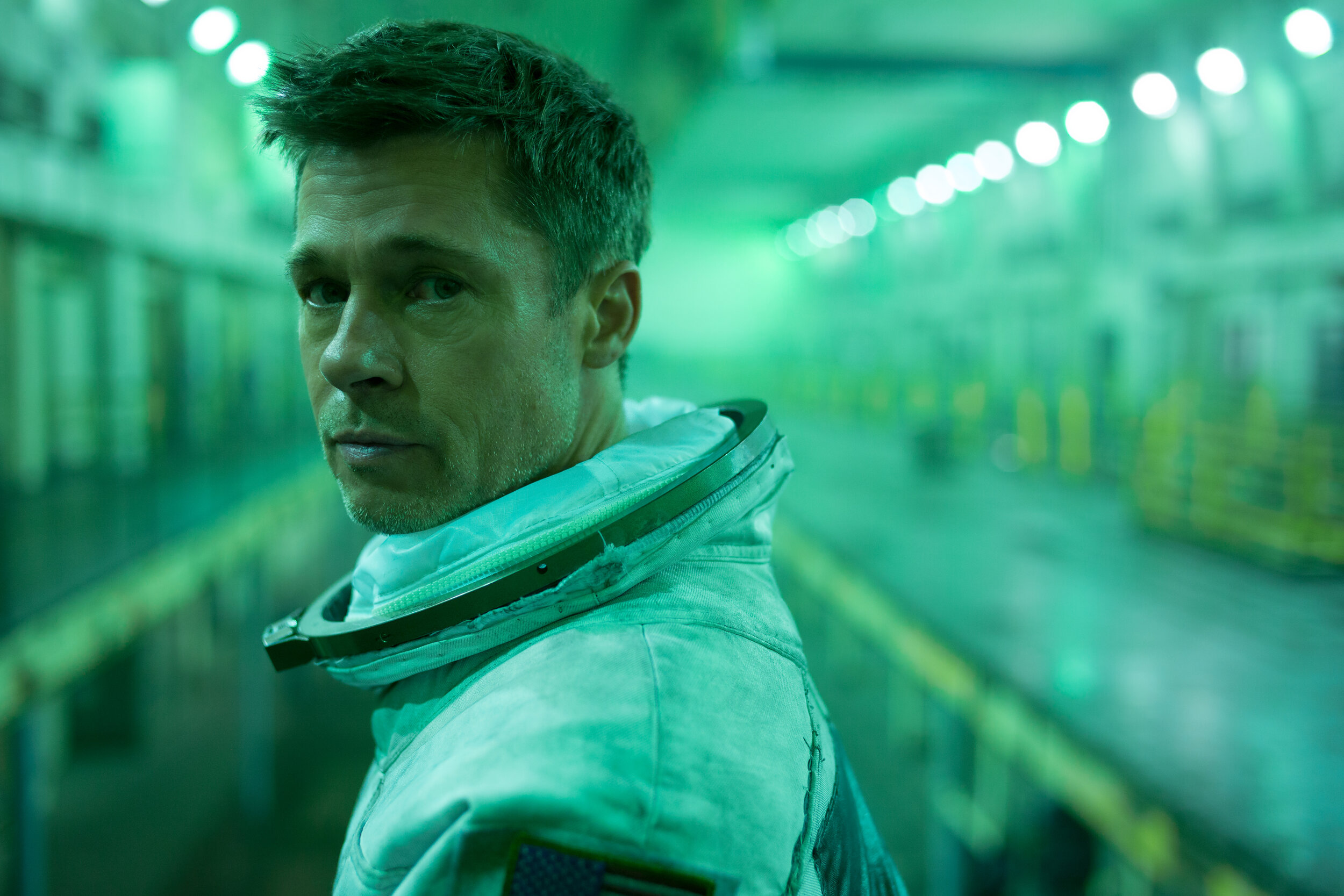Photo Credit: Francois Duhamel / Twentieth Century Fox
Dir: James Gray
Starring: Brad Pitt, Tommy Lee Jones, Ruth Negga, Liv Tyler, and Donald Sutherland
In the first few minutes of director James Gray’s deliberately paced, visually intriguing space exploration “Ad Astra”, the image of a person uncontrollably plummeting to earth is witnessed. The tumbling, somewhat lifeless, figure falling from the blue heavens towards the green earth seems poetic in a film that aims for insight over intensity, that examines the journey of the exploration instead of the joy of the destination.
“Ad Astra” is an often quiet and utterly controlled film, one that is pulling influences from other methodically structured films like “2001: A Space Odyssey” and most often “Apocalypse Now”. The isolation from the world, the journey of self-discovery, and the fear of the unknown are all themes explored in all these referenced films. “Ad Astra” has all of these concepts clearly apparent from the opening minutes, sometimes even using a voice-over narrative to make these ideas extra focused.
The narrative mission is simple, an astronaut has gone rogue and his exploits are threatening life on earth. His son, a famous space scientist named Roy McBride (Brad Pitt), is tasked with traveling to the moon and then onto Mars to deliver a heartfelt message/plea to try and thwart the efforts if his father (Tommy Lee Jones).
The composition of the film is completely stunning, a visual treat of the “not-too-distant” future that seems completely genuine in the portrayal of what the arrival terminal would look like on the moon, how massive an antenna tasked with searching for extraterrestrial life would look, and how business would find a way to make a quick dollar with airline luxuries. Add to this the beautifully composed photography with striking color bursts and intriguing geographic angles, and the film is a complete pleasure to look at.
Director James Gray has a distinct quality that can be felt in the design elements but the narrative for “Ad Astra” depends heavily on actor Brad Pitt, who is fantastic here, to progress the scenes from one moment to another. Pitt does an interesting job of composing his journey of self-discovery, the subtle emotional touches seen with mannerisms during the crumbling connection with his wife (Liv Tyler) and the calm demeanor displayed during tense scenes help to display the focus of the character who is in search of answers outside the normal. But it is solely Pitt doing the heavy lifting throughout the film as many of the other actors in the film are crafted with minimal depth, sometimes no depth at all.
Even with great performances and some fantastic designs, the narrative for “Ad Astra” struggles consistently throughout the film in connecting its themes of loss, fear, abandonment, and isolation in more meaningful ways. Instead the film turns into a bland story about fathers and sons. And while it searches for more meaning, it begins to meander aimlessly. This severely affects the pacing of the film which starts with promise but very quickly slows to a crawl. Scenes begin to feel overly drawn out and, most disappointing, the investment in Roy McBride and the journey to find his father dwindles and ultimately is lost by the time the final act arrives.
“Ad Astra” is a beautiful film to look at with an exceptional performance from Brad Pitt. Unfortunately, the promising theme of self-discovery becomes, like it’s primary character, lost in its own search into the unknown.
Monte’s Rating
3.00 out of 5.00










